Author: Catherine Marshall
-

MEDIA
- Catherine Marshall
- 24 February 2017
3 Comments
Women everywhere are celebrating Sports Illustrated's 2017 Swimsuit Edition for including among the innumerable images of slender young models a picture of a voluptuous woman wearing a bikini which doesn't conceal the stretch-marks on her stomach. This is Denise Bidot - a so-called plus-sized model, though probably average-sized in reality. This response is problematic, for it salutes a publication that objectifies women for widening the definition of those it is willing to objectify.
READ MORE 
-
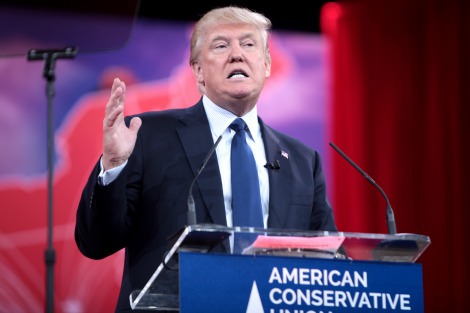
INTERNATIONAL
- Catherine Marshall
- 25 January 2017
30 Comments
No-one doubted Trump's ascendancy would deeply fracture the world as we know it. But few of us could have anticipated the swiftness with which his orders would impact some of the world's most disadvantaged citizens: vulnerable, impoverished women. With just one signature, the newly-installed president snatched from these women access to services that are essential to their physical and mental wellbeing and their economic prospects - and, in so doing, endangering countless lives.
READ MORE 
-
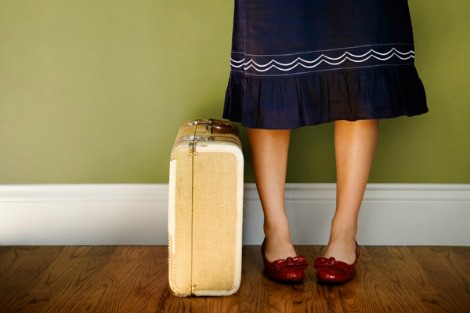
AUSTRALIA
- Catherine Marshall
- 08 December 2016
22 Comments
What does it take to secure room at Australia's inn? For the refugee, it's virtually impossible, with a fraction of the many millions of displaced people in the world granted entry into this privileged country each year. Those who immigrate here, like my own family did, must engage in an expensive and convoluted process. But the Australian Department of Immigration and Border Protection has now subjected a third group of people to its program of suspicion and inhospitality: elderly tourists.
READ MORE 
-
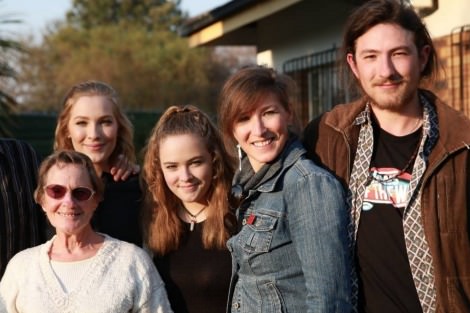
ARTS AND CULTURE
- Catherine Marshall
- 11 November 2016
5 Comments
One minute you're escorting your five-year-old daughter to the school gate, the next you're popping a bottle of Veuve Cliquot and wondering where the last 17 years went. My grandmother told me children age you. I thought she meant they wore you down, put grey hairs on your head. But I understood after I'd become a parent myself. Children are hour glasses that cannot be laid on their sides for even a moment, but must be turned over as soon as the last grain of sand has fallen through the flue.
READ MORE 
-
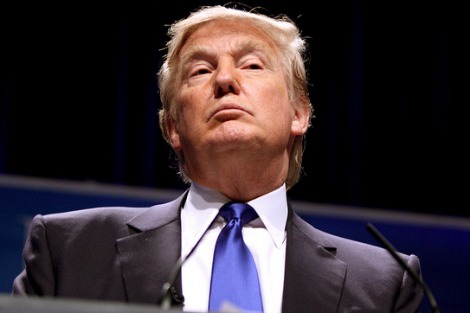
INTERNATIONAL
- Catherine Marshall
- 12 October 2016
20 Comments
You'd swear, from men's outrage in response to Trump's remarks, that such behaviour is rare, committed only by the truly reprobate and swiftly condemned. But, no: the volume of assault and harassment stories shared on Twitter with the hashtag #notokay, 27 million by Monday afternoon, prove that sexual assault and harassment is common. If women in their millions are relating their experiences of sexual harassment and assault, there must be men in their millions committing these crimes.
READ MORE 
-

AUSTRALIA
- Catherine Marshall
- 15 September 2016
3 Comments
According to the New York Times, historical documents show that in the 1960s the sugar industry paid scientists to downplay the link between heart disease and sugar consumption, and to pin the blame on saturated fat instead. The consequences of this unethical behaviour are scandalous: five decades of nutrition research tainted by the sugar industry's interference. I'd already reached my own conclusion about the dangers of sugar when my then-17-year-old son was diagnosed with type 1 diabetes.
READ MORE 
-
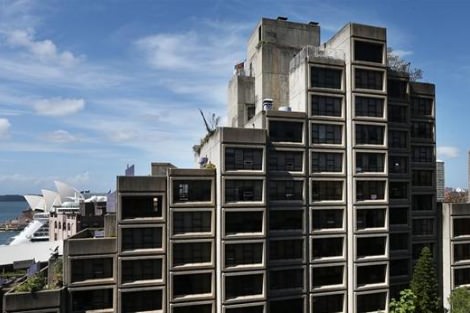
AUSTRALIA
- Catherine Marshall
- 18 August 2016
6 Comments
The Brutalist building - so ugly when I first saw it, now a familiar milestone on the journey into the city - has been condemned to an undignified death; soon it will be demolished, a luxury apartment building erected in its stead. The long-term residents have packed their meagre belongings and gone (though not without a fight). Such is the pattern of progress in New South Wales, under a government that has no compunction in selling public land to the person whose wallet is the fattest.
READ MORE 
-
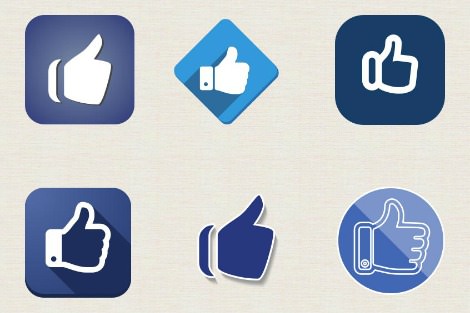
MEDIA
- Catherine Marshall
- 29 July 2016
2 Comments
Though the internet has stretched and expanded the number of people and places we have access to, it has also constrained the range of ideas and opinions to which we're exposed. Research has found that Facebook users tend to read and share information that reinforces their own beliefs. This phenomenon has been particularly noticeable in the past month, with the emotion whipped up by the Brexit campaign, the election, and a spate of shocking, apparently Isis-related killings.
READ MORE 
-
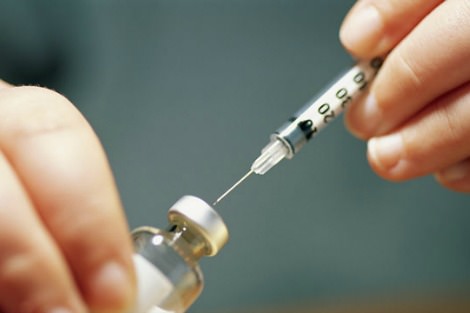
AUSTRALIA
- Catherine Marshall
- 24 June 2016
5 Comments
Facing his first election as leader of the Coalition, Turnbull announced that, if reelected, his party would spend $54 million on continuous glucose monitors for up to 4000 Type 1 diabetics under the age of 21. This impressive promise was a lightning rod to the children and small number of adults diagnosed each year with Type 1 diabetes. But it comes too late for Donna Meads-Barlow, who has campaigned tirelessly for government funding for CGMs, and upon whose efforts the government has finally taken action.
READ MORE 
-
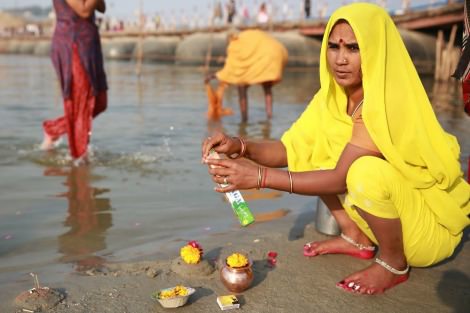
INTERNATIONAL
- Catherine Marshall
- 27 May 2016
3 Comments
In 2013 I attended an event so exclusive, so unique, it wouldn't happen again for another 144 years. It was the Maha Kumbh Mela in Allahabad, Uttar Pradesh, where, over a six-week period, an estimated 120 million Hindu pilgrims converged on the banks of the Ganges, Yamuna and mythical Sarasweti Rivers in order to perform puja, or the cleansing of their sins. If we're open to what travel seeks to teach us, we'll gain from it the most superior of educations, and the most profound lessons in humility.
READ MORE 
-
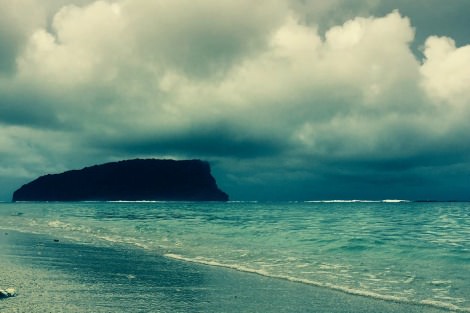
INTERNATIONAL
- Catherine Marshall
- 29 April 2016
3 Comments
It can be a dangerous thing, travelling to paradise. Those turquoise lagoons and white beaches and lush hills often conceal a more sinister side, a Mr Hyde to the brochures' bright-and-shiny Dr Jekyll. So it was on Samoa this week, when Cyclone Amos skirted by. We were told it was headed for Samoa's main island, Upolu, where we were staying. Still, we felt calm, for there wasn't a breath of wind in the sky. Later, at the height of it, I stood up in the dark, opened the curtains and looked outside.
READ MORE 
-

INTERNATIONAL
- Catherine Marshall
- 04 April 2016
2 Comments
When suicide bombers struck Brussels, I was travelling far from home, in southern Italy. The news evoked in me a sense of vulnerability, for within days I would board a series of flights from Reggio Calabria to Rome to Abu Dhabi and then Sydney. For a moment, it seemed the terrorists had achieved what they set out to do: spread fear and distrust far beyond the site of their attacks, across countries and continents and oceans so that eventually the whole world would be infected.
READ MORE 